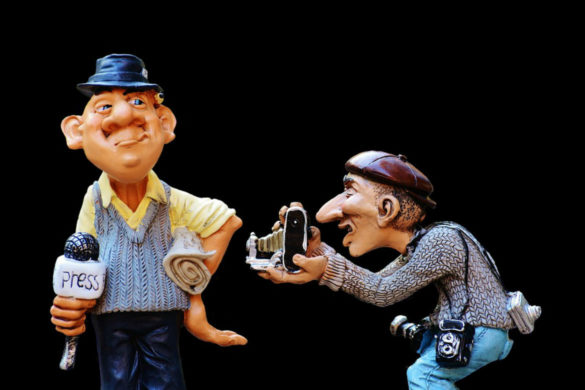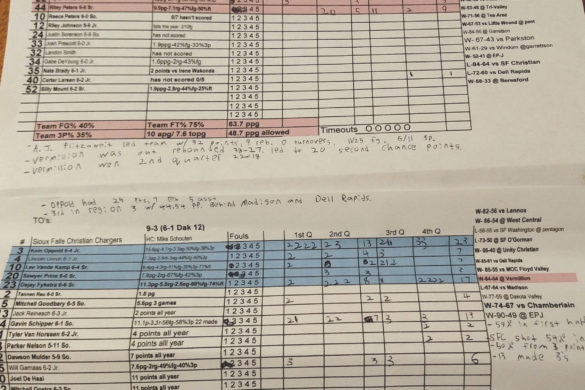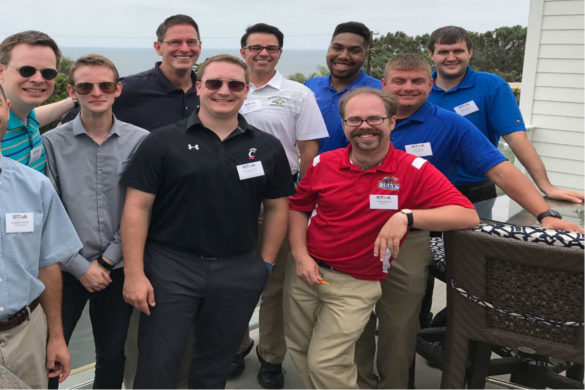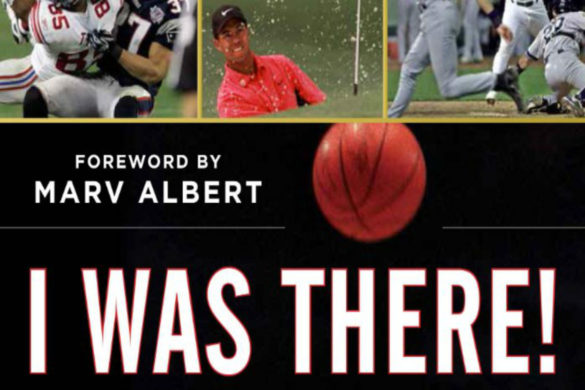While I’m away on vacation I asked a couple of industry friends to write guest posts so I can enjoy vacation and not worry about the website! One of the people who graciously offered to help was Alex Rawnsley of SportscasterLife.com. A huge thanks to Alex!
On a separate note, I am an avid reader of SportscasterLife.com. Alex provides great resources and perspective for sportscasters of all ages. I strongly recommend visiting his site when you’re done with this post.
We all want the golden pipes. The slick, smooth, baritone voice, the iconic pitch and inflections of an Emrick, Buck, Michaels or Scully. In a subjective world such as sportscasting, any ability to prove you’re just like the other guys can be valuable in a job hunt, triggering an employers nostalgia or tapping in to an existing preference. But what happens when you’re different? What happens when you don’t sound like, or look like everyone else.
Hi. My name is Alex Rawnsley, and I’m a hockey broadcaster in British Columbia, Canada. I’m also proud to be born and raised in Australia, meaning I sound more like Steve Irwin and Paul Hogan, than Steve Jones or Paul Romanuk.
Needless to say, the Australian accent mixed with the Canadian national (winter) sport, isn’t one that would help me trigger nostalgia, or play into an existing preference with potential employers. But thanks to a lot of hard work, I’ve been heavily involved in sportscasting since 2010, calling hundreds of games in that span.
So what do you do when you’re a little different? How do you beat the bias and prove you’re the best person for the job, when someone else may sound ‘better’? Here’s three techniques I’ve used in my career to jump to the front of the cue.
- Be more than just a voice
I’m a huge advocate of having what I call ‘secondary skills’. These are things that aren’t necessarily broadcast related, but will aid in helping you become more valuable to a team, school or station. Things like graphic design, video editing, podcast production, sales and more can all turn you into a complete package and offset any perceived deficiencies in your broadcast voice or style. - Admit you’re different
One thing I’ve been focusing on during my career, particularly when I first address a new audience, is to address the elephant in the room. In a professional, but humerous way, I’ll casually address the fact that I’m Australian. Whether it’s explaining an Australian slang word that I’d consider ‘normal’, but a North American audience wouldn’t necessarily understand or just acknowledging the accent is a great way to humanise yourself to your audience and create a connection. - Show You’re Committed to Improving
While this tip isn’t exclusive to broadcasters without that golden voice, it is especially important in creating the complete package. If you can’t get by with silky smooth pipes, get by on your commitment to your craft. That means being the first in, the last to leave and the hardest worker while you’re there. If an employers sees a less than ideal voice as a drawback, your work ethic and dedication to being the best should certainly make up for it.
I know that in my career, I’ve rarely been the first choice for broadcast assignments. Whether it’s because others had more experience, or simply ‘sounded better’, I am certain that I was rarely the best broadcaster amongst my peers. What I truly believe set me apart though was my ability to bring more to the table, to not shy away from my natural voice, and to routinely go into a game and working to make it better than my last.
The fact of the matter is that we’re not all born with magic vocal chords that can produce the ideal sports broadcasting voice. But it doesn’t mean a successful sports broadcasting career isn’t on the cards.











